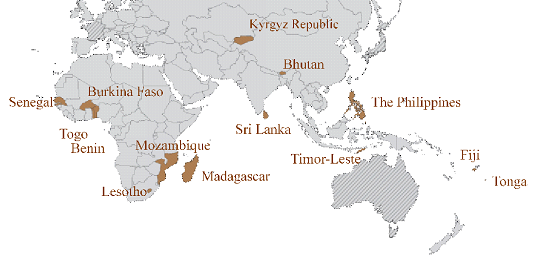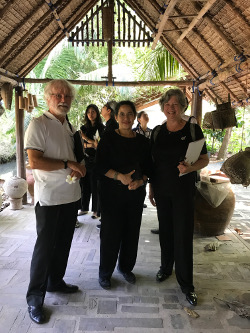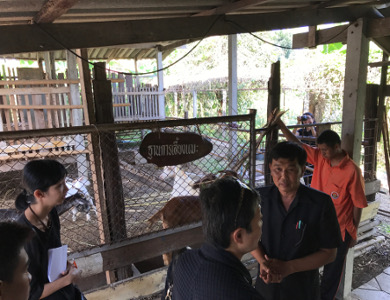ISL is delighted to have been asked to design and help deliver the Sufficiency Thinking In Sustainable Development (STiSD) program run in Thailand from 14-19 May, 2017. This high-quality training program centred on the Sufficiency Economy Philosophy (SEP) bestowed upon the Thai people by His Late Majesty King Bhumibol Adulyadej.
The program was designed to showcase the SEP and how it has been implemented in different parts of Thai society. Emphasis was placed on participants understanding the SEP principles and how they might be applied to projects in their home country.
View Dr. Gayle Avery’s presentation to see what was covered in this amazing event and how the 5 day session took place.
Following its chairmanship of the G77 in 2016, Thailand sponsored 19 very senior participants from 17 countries including Benin, Bhutan, Burkina Faso, Chile, Fiji, Kyrgyz Republic, Lesotho, Madagascar, Mozambique, The Philippines, Senegal, Sri Lanka, Thailand, Timor-Leste, Togo, Tonga, Vietnam, and USAID.

Map showing the countries attending the Sufficiency Thinking in Sustainable Development training program
The program is sponsored by four organisations: Thailand Sustainable Development Foundation, Thailand International Cooperation Agency, College of Management, Mahidol University, and ISL.
The venue for this program was the Sampran Riverside Resort, which forms one of the case studies in the program. The grandson of the founder of the resort has converted many local farmers to organic farming, with great success on many levels under the Sampran Model. As the website shows, other case studies cover agriculture, community development, environmental management, and business. Dinner speakers reported on health and family planning successes in Thailand.
STiSD incorporates many state-of-the-art experiential learning approaches, with a strong emphasis on learning from site visits and case studies outside the classroom. Reflection and action planning workshops are integral to the learning. Participants returned home with new knowledge and increased networks of like-minded people, but also with plans for action on specified projects in their home countries.
Sufficiency Thinking in Sustainable Development


The above photos are taken at two of the case studies that will be visited during the training program: the Don Wat Sai sustainability school and the Amphawa Conservation Project.
